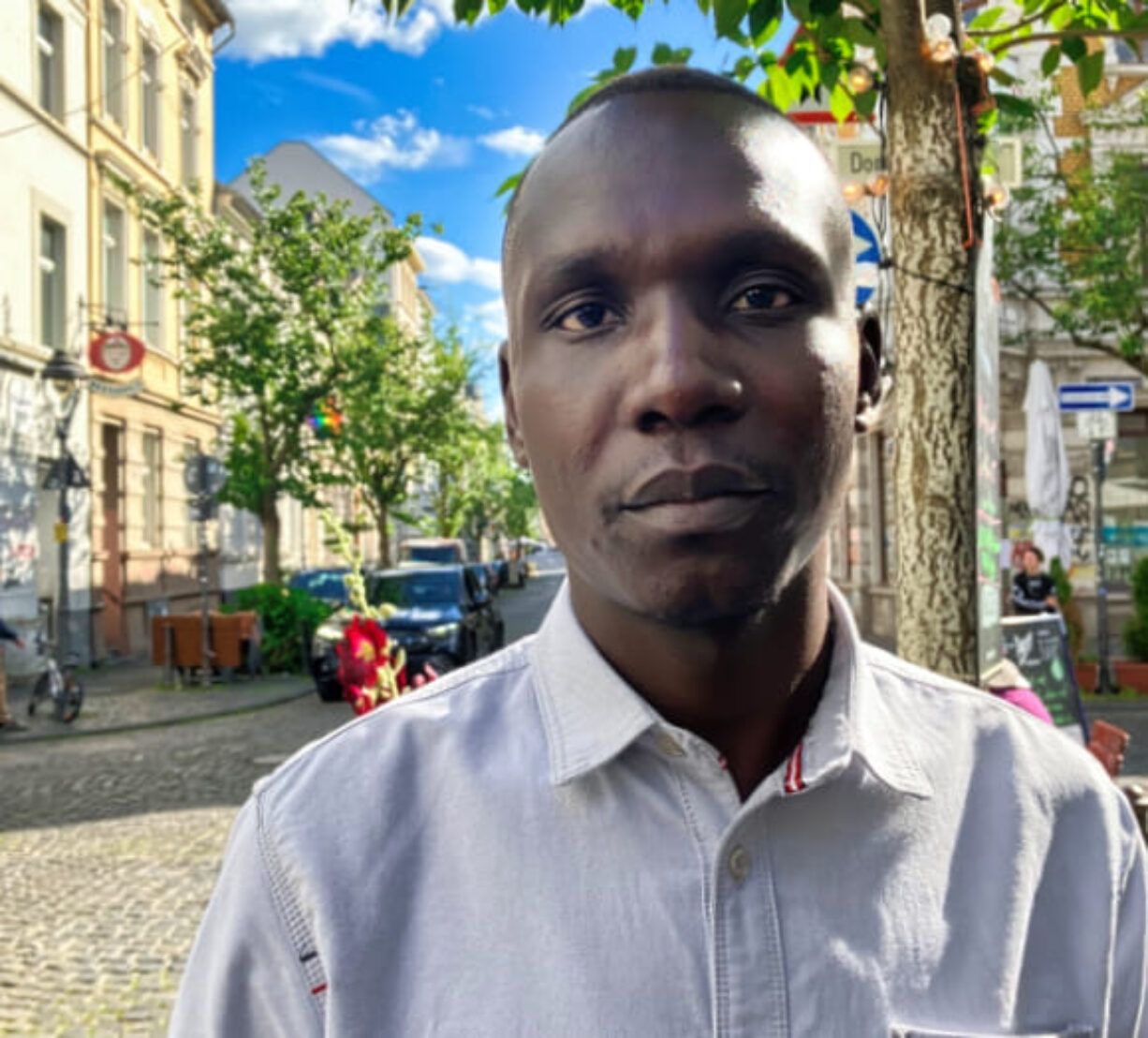
Richard, farmers around the world and in Uganda are facing serious problems in terms of loss of soil health, forests, biodiversity and water. Can you give an example of where you are feeling these effects most acutely?
In my country, over 80 percent of the total population works in agriculture. Yet, young people have no access to the various means of production, finances, machinery, land or markets. Ultimately, they have to pollute the environment heavily because this is the only way for them to earn a living. One of the main activities is burning charcoal to make fuel. In my country, trees are being cut down on a massive scale.
How does that look in concrete terms?
Charcoal only takes a short time to produce. And many young people in my country want to make easy money. They cut down lots of trees to make charcoal, burn the material and then sell it. People use charcoal for cooking, for example. Also, crops are being grown on a massive scale. With the increasing mechanisation of agriculture, farmers are using tractors and cutting down trees. You even have to remove the tree stumps for the tractor to work. This is also evidenced by the increasing use of agrochemicals. These are not regulated in my country. A farmer literally does not know which chemical to use when and how to dispose of it. The substance ends up in the water. It affects some of the natural fauna, the insects that would help us pollinate plants.
What’s more, temperatures are rising. There is no reliable precipitation. We always have two seasons in our country. The rainy season usually starts at the beginning of March and ends in June. Last year, rainfall only started at the beginning of April and lasted for two or three weeks. Water scarcity is now a problem and we don’t have enough pastures, which is problematic for livestock farming.
How can you empower young people in your organisation to face these challenges as administrators of the country?
We have formulated a political position paper specifically on climate change. We want to present it in parliament, but we haven’t yet been given a date for our presentation. But we believe that we will get it soon. When we present it, we expect some measures to combat climate change. We have already proposed measures to gain access to means of production, seedlings and financial resources. Planting trees also requires resources that young people themselves may not have. We work with various partners to plant and care for over two million trees. Our members, both male and female farmers, are taking part. One of them has planted over ten hectares. Farmers will benefit directly from this. We are also committed to green energy, especially biogas. We are continually helping farmers to set up biogas plants at low cost.
We have also mobilised our members to support agroforestry, particularly at district level with the young farmers’ associations. We are strengthening the ability of these farmers to recycle everything they obtain from their various production cycles in order to avoid greenhouse gases. We are making every effort to work together with the various partners and governments. If we can use the established structures of our organisation, it will be easier to disseminate information about the environment, climate change and desertification.
The Deutsche Gesellschaft für Internationale Zusammenarbeit (GIZ) GmbH, together with Andreas Hermes Akademie (AHA) and the Deutscher LandFrauenverband (dlv), is supporting female farmers in Uganda. Is it helping in this regard?
It is, because if you look at the commitment of women, they are the most active farmers. Around 76 percent of Ugandan women work in agriculture and are involved in primary production. It makes considerable sense for them to be aware of this and expand their capacities. In the programme that we are implementing with GIZ and dlv, we are strengthening the capacities of both female and male farmers. We are establishing connections to various resources, such as financing. If we promote saving and financial literacy in these farmer groups, they will be strengthened. This means that they will have a little money at their disposal to buy seedlings and rent land. Now they can implement various measures to combat desertification and climate change.
The United Nations Convention to Combat Desertification (UNCCD) turns 30 this year. As youth representatives, you have written a message to the international platform on the occasion of the World Day to Combat Desertification and Drought. What is your message to this international platform in relation to your country?
Uganda is a young, growing country where over 75 percent of people are between 18 and 24 years old. Political lobbying requires the involvement of the young, because young people have to put forward their own interests. No one else can talk about the future of young people. They know what is troubling them, they know what they want and they know that they are many.
I think young people are very innovative and have brilliant ideas and interventions. They need to be heard, brought on board and tuned into existing measures, ideas or policies. Because I have noticed that young people turn their back on such measures if they are not involved.
If young people are listened to and have access to different resources and funding, they will be more likely to participate in value creation instead of contributing to massive deforestation.
Interview conducted by Claudia Jordan, GIZ
This could be of interest to you:
-
Image and Public Relations Work, International Cooperation -
International Cooperation From machines to added value: Ethiopian seed professionals discover their entrepreneurial gene!
Read -
Personal Development, International Cooperation Leadership, Confidence and Being Heard – Young Leaders Incubation Program
Read